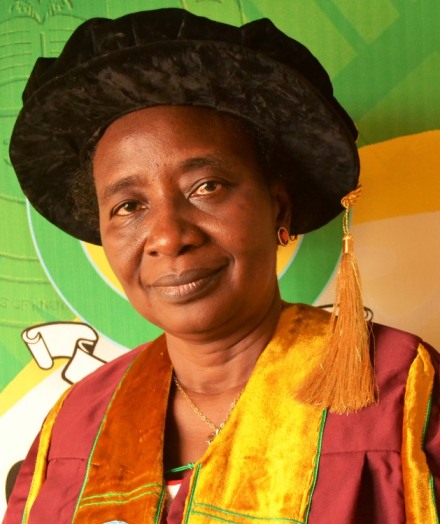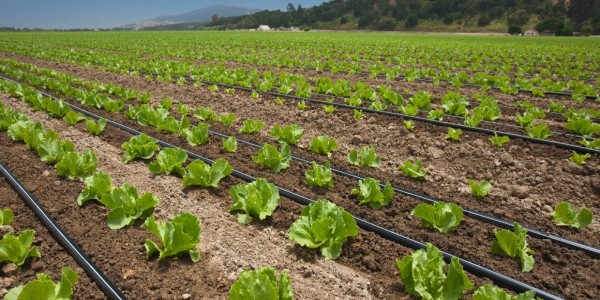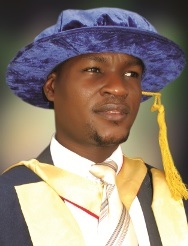 Dr. OYEYIPO Ibukun P.
Dr. OYEYIPO Ibukun P.
Head of Department, Physiology
Email:
Dr. Oyeyipo is a Senior Lecturer, the pioneer full-time staff and current Head of Department of Physiology. He obtained his Ph.D from the University of Ibadan, Nigeria in 2014 and won a postdoctoral fellowship the same year at Stellenbosch University, South Africa. He was admitted as a fellow of the Institute of Basic Medical Sciences (UK) in 2015. Dr. Oyeyipo was on internship at the Centre for Reproduction Medicine and Andrology, University of Muenster, Germany in 2012 and holds other academic and professional qualifications, obtained from the Nigerian Institute of Management, Earth Institute at Columbia University and Johns Hopkins School of Public Health. He is an active member of several professional associations within and outside Nigeria and has won several research and academic grants. Dr Oyeyipo has attended and presented over 25 scientific papers in local and international conferences and has over 35 publications to his credit.
As an academic staff in the University, I am actively involved in teaching, invigilating, assessing and collating students’ results. I am also involved in research from the stage of conceptualization of ideas, publication of findings and ensuring that studies translates into community development through enlightenment talks and counselling.
As Head of Department, I coordinate the day to day administrative and academic activities and oversees the conduct of both staff and students in the Department. I also organise all lectures and coordinate all examination as the chief examiner.
My research activities focus mainly on male reproductive toxicity. In the last decade, I have investigated the effects of some pharmacological agents such as antimalarial agent, oral contraceptives, antidepressant and additives alongside their mechanisms of action with implication for fertility/infertility in both in vivo and in vitro experimental models.
My studies established that Nicotine, Norgestrel, Quassin, Arthemeter and Amitriptyline inhibited sperm functions in animal and human studies. Inhibition of testicular steroidogenesis was the major focus of their actions. They also impacted negatively on male reproductive functions through hypothalamao-hypophyseal- gonadal axis. This could be a major factor among others, attributed for the decline in sperm quality and quantity and thus declined fertility potential in man over the last century.
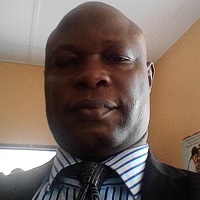 Dr. ADELEKE Najemdeen Ajao
Dr. ADELEKE Najemdeen Ajao
Senior Lecturer, Department of Obstetrics and Gynaecology
College of Health Sciences
Email:
Dr. Najemdeen Ajao Adeleke, joined Osun state University Osogbo on 2nd August 2010 as a lecturer I and a consultant in the department of O & G, Faculty of Clinical Sciences in the College of Health Sciences. He was promoted to Senior Lecturer effective 1st October 2013 and is being reviewed for reader in Obstetrics and Gynaecology for year 2016. Prior to joining the university, he had worked with Osun State Hospitals Management Board. He was the consultant in charge of State Hospital Asubiaro, Osun State.
Dr. Adeleke, N.A. was part of the college team that earned full accreditation for MBBS in the year 2011. In 2012, when MBBS was suspended, Dr. Adeleke, joined the staff of Department of Anatomy in the faculty of Basic Medical Sciences to teach Anatomy. He also teaches Nursing and Public Health students both anatomy and reproductive health courses. He was Director University Health Services 2011 to 2015 and Acting HOD, Department of Nursing Sciences 2014/15. He was a member of many College and University Committees.
Dr. Adeleke N.A. research focus is in Maternal and foetal health, women reproductive health as well as gender violence against women. He had published key articles in maternal mortality, pregnancy complications and managements including a protocol on management of diabetes in pregnancy, HIV/AIDS and women affectation. Dr. Adeleke, N.A. has worn research grants including, World Diabetes Foundation WDF 13-764 (2013-2016) and TET-fund (2013) grants and attended conferences.
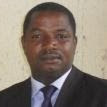 Dr. OMISORE, Akinlolu Gabriel
Dr. OMISORE, Akinlolu Gabriel
Senior Lecturer, Department of Community Medicine
Email:
Dr. Omisore, Akinlolu Gabriel is a Fellow of the West African College of Physicians, Faculty of Community Health since April 2010. He joined the Osun State University in September 2011 as a Lecturer 1 and was promoted Senior Lecturer in October 2014 and became a confirmed staff on 25th February 2015. In line with the vision and mission of the University, he has been actively involved in research, provision of community service and the teaching and training of students towards producing high quality graduates of high academic standard who could hold their own anywhere in the world. He has had the opportunity of heading two different departments (Pharmacology and Community Medicine) since joining the University. He is one of the investigators of the just concluded Gestational Diabetes project (Grant) in Osun State sponsored by the World Diabetes Foundation (WDF 13-764) and he is a current beneficiary of the TetFund Institutional Research Grant (2016).
In the 2016/2017 session alone, he is teaching over 20 courses. The teaching time now averages a minimum six hours per week. He is the course coordinator for seven different courses including COM 201, the course with the largest number of students in the College of Health Sciences. He is also a Course Advisor to many students with whom he interacts frequently.
Research: He is an avid researcher with about twenty five publications and many other manuscripts are under review and/or are work in progress.
Committee Membership: He is a member of various committees especially at the departmental and College levels. He heads at least two committees as of June 2017
Community Service: Provided through the community relations committee which he heads.
Research Interests: Epidemiology and Biostatistics, Health Education and Promotion, Non communicable Diseases (including injuries and violence prevention and care), Adolescent Health and School Health.
Research Achievements:
Prevalence of usage of modern contraceptives among physically challenged in-school adolescents in Osun State. (2009 State wide study). Findings from this study were presented at the 2nd International Family Planning Conference in Dakar Senegal in December 2011
Prevalence of school violence in Osun State, south western Nigeria (2010 State wide study).
Findings from this study were presented at the National Forum on the Health and Development of Young People in Nigeria coordinated by the Federal Ministries of Health and Youth Development and UNFPA in June 2010 at Abuja. The findings are part of what is being used to advance young people’s health and development in Nigeria.
Grant Awarded: Three grants in all, of which he is Principal Investigator in one, currently ongoing.
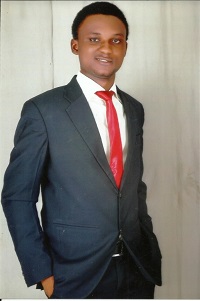 Adeleke, Opeyemi Samson
Adeleke, Opeyemi Samson
Lecturer, Department of Anatomy
Anatomy Wing, College of Health Science Complex
Mr Adeleke Opeyemi Samson is a lecturer in the Department of Anatomy, College of Health Sciences, Osun State University, Osogbo. He joined Osun State University work force in the year 2015 as an Assistant Lecturer. He had his first degree (B.Tech) in Anatomy (Second Class upper division) from Ladoke Akintola University of Technology Ogbomoso and Masters of Science (M.sc.) degree in Anatomy from University of Ilorin, Ilorin, Kwara State, Nigeria. He is currently pursuing his Ph.D. programme in the field of Reproductive Anatomy at the University of Ilorin. Mr Adeleke is a Member of Anatomical Society of Nigeria (ASN), Member, Society of Experimental and Clinical Anatomists of Nigeria (SECAN) and also Member, Red Cross Society of Nigeria.
Mr. Adeleke Opeyemi is committed:
To train students in Topography Anatomy/Macroscopic and Microscopic Anatomy knowledge that will be sufficient for them to proceed for further studies in related fields of specialization and enable them to apply the course to life situations.
To train and supervise student projects and help them to be skillful at using the basic research instruments that will make them competitive globally in the field of Anatomy.
Set and mark assignments and set examination questions as well as assessing the work and progress of students by reference to defined criteria and provide constructive feedback to students.
My area of research interest are Reproductive Biology and Endocrinology and my research so far has contributed to the establishment of the toxicity profiling of some Antipsychosis drugs (Chlorpromazine and Rawoulfia vomitoria), Antihypertensive drugs (Methyldopa and Moringa oleifera) and Chemicals/Metals (Pyrethroids and Aluminum) which are widely used drugs and chemicals. The findings of these studies have helped to establish the safety or otherwise effects of these drugs and chemicals on male fertility to the users and medical personnel. Moreover, my research so far has helped to showed high beneficiary effects of some natural products and supplements (Rauwolfia vomitoria, Moringa oleifera and Riboceine) on male fertility (as Fertility enhancer).
Some of the research work are; Sperm parameters and histopathological expression in animal model testes after exposure to Aluminum and Pyrethroids. Ameliorating effects of D-ribose-L-cysteine on the reproductive parameters; GnRH and Bax protein expression in hypothalamus and testes respectively after exposure to antipsychotic drugs; DBY gene expression in psychotic patient treated with herbal antipsychotic drugs; Steroidogenic enzymes, DAZ gene and p53 protein expression after exposure to different ranges of electromagnetic radiation from Smartphone.
Carrying out administrative duties has assigned by the Head of the Department, some of which include student liaison officer and Department examination officer
Carrying out research that will positively impact the University and Communities at large.
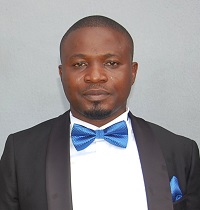
Lecturer, Department of Anatomy
Anatomy Wing, College of Health Science Complex
Mr Adegoke A.A is a seasoned lecturer with good experience in teachings and research techniques in anatomy. He bagged his first degree in anatomy in 2008(LAUTECH), Masters degree in anatomy in 2012(UNILAG) and presently pursuing his Ph.D in anatomy(OOU) with endocrinology as area of specialization. He has eight (8) publications and several accepted journals. He has taught anatomy courses across all professions in the college of health sciences.
Mr Adegoke A.A. serves the university in many capacities. He takes the students on lectures and practicals, a level adviser to the 2013/2014 set and member of different committees within the College of Health Sciences.
Several works are done on the study of histology of the pancreas and some ameliorative effects of herbs ranging from Moringa Oleifera, Curculigo pilosa among others on experimentally induced hyperglycaemia. The current research activity is to study the activities of mitochondria in beta cells following administration of Curculigo Pilosa aqueous rhizome extract in STZ-induced hyperglycaemia.
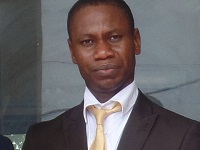
Lecturer, Department of Anatomy
Anatomy Wing, College of Health Science Complex
Dare, Babatunde Joseph obtained his Ph.D. (Anatomy) in 2017, Olabisi Onabanjo University, Ago-Iwoye, his MSc. (Anatomy) in 2011 and BSc. (Anatomy) in 2007 respectively, University of Ilorin, Ilorin. He has a keen interest in teaching and researching in the field of Life Science; passionate in impacting the society through innovative ideas and has published admissive number of research articles. An experienced anatomy teacher; taught anatomy at various levels and a TReND alumni in Molecular biology and Bioinformatics with vast knowledge in integrating population genetics and anthropological (Forensic) Anatomy.
Well experienced in the teaching of all aspect of human anatomy (Embryology, histology and gross anatomy of human including dissection of cadaver), molecular biology, biological anthropology, genetics, histochemistry and microscopy to medical, dental, anatomy, physiology, nursing and public health students. He has supervised and co- supervised several novel researches at undergraduate and graduate levels.
He has worked extensively on the area of reproductive biology and endocrinology; maintenance of testicular, ovarian and uterine integrity using antioxidants present in naturally occurring plants against xenobiotic substances. A novel work on the relative associations that exist in genetically determine dermatoglyphics traits and female fertility has been elucidated. Currently, deep insight in the application of DNA fingerprinting and foot printing or profiling in forensic anatomy (including dermatoglyphics; in preserving the genetics identity) and in detection of congenital anomalies is under investigation.
 Dr. HASSAN, Mustapha Busuyi
Dr. HASSAN, Mustapha Busuyi
Senior Lecturer, Department of Surgery
Room 2-23, CHS Building, UNIOSUN
Email:
Dr. Mustapha B Hassan, is a Senior Lecturer, College of Health Sciences, Osun State University, Oke Baale, Osogbo, Nigeria and Visiting Consultant Ophthalmic Surgeon to State Hospital, Ilesa under a special arrangement between the University and the State Government of Osun.
Dr. Mustapha B Hassan received his MBBS degree in 1994 from the University of Lagos and his FMCOph in 2004 from Nigeria Postgraduate Medical College followed by FWACS in 2005 (Ophthalmology) from the West Africa College of Surgeons. He joined Osun State University in 2010 as a Lecturer I and is currently a Senior Lecturer in Ophthalmology, Surgery Department of the College of Health Sciences and a Visiting Consultant Ophthalmic Surgeon to State Hospital, Ilesa under a special arrangement between the University and the State Government of Osun.
He is presently engaged in teaching Gross Anatomy, Embryology as well as Histology to 200, 300 and 400 level students in the College of Health sciences. He has put in 7 years in the service of the University in addition to several years of teaching Nursing and Medical students in the public service of Osun State as well as medical students in LAUTECH. He is also engaged in several research projects and administrative duties as member/chairman of University and College Committees.
He is currently engaged in the following research works:
1. Cow Horn Injury of the Eye - A case report and Review of Literature.
2. Patterns of Ocular surgery done at a Secondary Eye Care facility in Osogbo.
3. Measles and its complications on the Eye.
4. Diabetic Eye Diseases in a Secondary Eye care centre
5. Pattern of Eye disorders in a University community and in a cohort of Boarding Secondary School students.
He also has Published 16 articles in various local and international scientific Journals and has numerous oral presentations at Scientific Conferences – both local and international.
 Prof. O. O. Oladele, a Professor of Commercial Law
Prof. O. O. Oladele, a Professor of Commercial Law
Email:
Prof. O. O. Oladele, a Professor of Commercial Law is a member of Senate, the Chairman, Committee of Provosts, Deans and Directors, pioneer Provost, College of Law as well as Professor of business law of the Osun State University, Osogbo. He heads the Ifetedo Campus of the University. He is one of the leading scholars in securities regulation in Nigeria. He is the founding Editor-in-Chief of the Uniosun Journal of Humanities, Law and Development as well as an ICAN’s Chief Examiner in Business Law and Business Law Editor of its Pathfinder.
He was the pioneer Chair of the Committee on Business Organizations of the Session on Business Law of the Nigerian Bar Association. A Fulbright scholar and a scholar of the prestigious Georgetown University Law Center, Washington DC.
Professor Oladele attended the University of Ife (now Obafemi Awolowo University), Ile-Ife, for his LL.B and PhD (Law) degrees as well as Georgetown University Law Center, Washington DC, for his LL.M degree. His wider area of scholarly engagement is the law of corporate management and finance on which he has published extensively. Professor Oladele delivered the second inaugural lecture of the Osun State University titled How secure are securities?
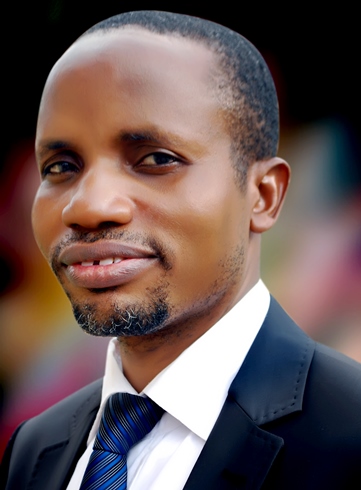 Professor Oguntola Jelil Alamu B.Tech., M.Sc., Ph.D Mechanical Engineering
Professor Oguntola Jelil Alamu B.Tech., M.Sc., Ph.D Mechanical Engineering
Email: ,
Research Focus: Thermodynamics of materials, Fluid flow and Renewable energy
Oguntola Jelil ALAMU is a Professor in the Department of Mechanical Engineering of Osun State University, Osogbo, Nigeria. He obtained B.Tech. degree in Mechanical Engineering at the Ladoke Akintola University of Technology (LAUTECH), Ogbomoso, Nigeria in 1998, M.Sc degree in the same discipline at the University of Ibadan, Nigeria in 2001 and a Ph.D degree in Mechanical Engineering (Energy Studies and Renewable Energy) at LAUTECH, Ogbomoso, Nigeria in 2008.
He is a member of notable professional organizations including Council for the Regulation of Engineering in Nigeria (COREN), Nigerian Society of Engineers (NSE), Nigeria Institution of Mechanical Engineers (NIMechE), Nigeria Institute of Management (NIM), Council for Renewable Energy in Nigeria (CREN), African Wind Energy Association (AFRIWEA) and the World Academy of Science, Engineering and Technology (WASET).
Professor Oguntola Jelil Alamu has over fifteen (>15) years of teaching, research and administrative experience in Nigerian Universities. He has taught, supervised and examined students at undergraduate and postgraduate levels at LAUTECH, Ogbomoso, Olabisi Onabanjo University, Ago-Iwoye, Federal University of Agriculture, Abeokuta and Osun State University, Osogbo, Nigeria. He has also assisted Bells University of Technology, Ota in adjunct capacity. He later became an external examiner to LAUTECH, Ogbomoso and Covenant University, Ota, Nigeria.
His research interests are in the areas of Thermodynamics of materials, Fluid flow and Renewable energy with major focus on biofuel.
He has published widely in local as well as high impact international journals of repute. He has attended and presented papers at local and international conferences; disseminating his research findings. His research prowess was evident through one of his publications, which earned (certified) global ranking by ScienceDirect (Elsevier) as one of the “Top 25 most downloaded Articles” in Fuel.
Professor Oguntola Jelil Alamu has held modest administrative positions in the University system. He was Coordinator, Mechanical Engineering Department (2007-2008) and Coordinator, Degree Foundation Programme (2004-2008) at Olabisi Onabanjo University, Ago-Iwoye. He served as Acting Head of Department of Mechanical Engineering, Federal University of Agriculture, Abeokuta (2008-2010).
At Osun State University, he served as the Acting Head of Department of Civil Engineering (2010-2011), Acting Director of Academic Planning (2011-2013; re-appointed till date) and Acting Dean, Faculty of Engineering (2013-date). He is a member of University Senate and has served as member of key University committees including the Strategic Plan Committee, Admissions Committee, Staff Disciplinary Panel, Board of Postgraduate Studies, Committee of Deans, Provosts & Directors, Senate Committee on Examination Results, Business Committee of Senate, Appointments & Promotions Committee and Development Committee amongst others. He has also served the Governing Council of the University on the Search Team for appointment of Vice-Chancellor.
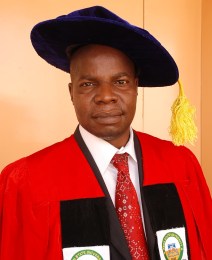 Prof. Temi OLOGUNORISA, B.Sc (Hons) (U.I), M.Sc (Jos), Ph.D (Uniport)
Prof. Temi OLOGUNORISA, B.Sc (Hons) (U.I), M.Sc (Jos), Ph.D (Uniport)
Email:
Prof. Temi OLOGUNORISA, a Professor of Geography and Climate Change, holds a PhD degree in Climatology from the University of Port Harcourt, Nigeria. He is Professor of Climatology and Head, Department of Geography, Osun State University, Osogbo, Nigeria. He is also the Director, Centre for Climate Change and Environmental Research of the University. Presently, he is the Provost and Head of Campus, Osun State University, Okuku Campus. He has over 100 publications to his credit in the area of climatic and meteorological hazards, climate change impact assessment, flood hydrology and climate change policy.
He has held visiting professorship positions in leading universities in USA, Japan and Canada. He is a reviewer to over 10 top rated international journals in geography and environmental science.
More...
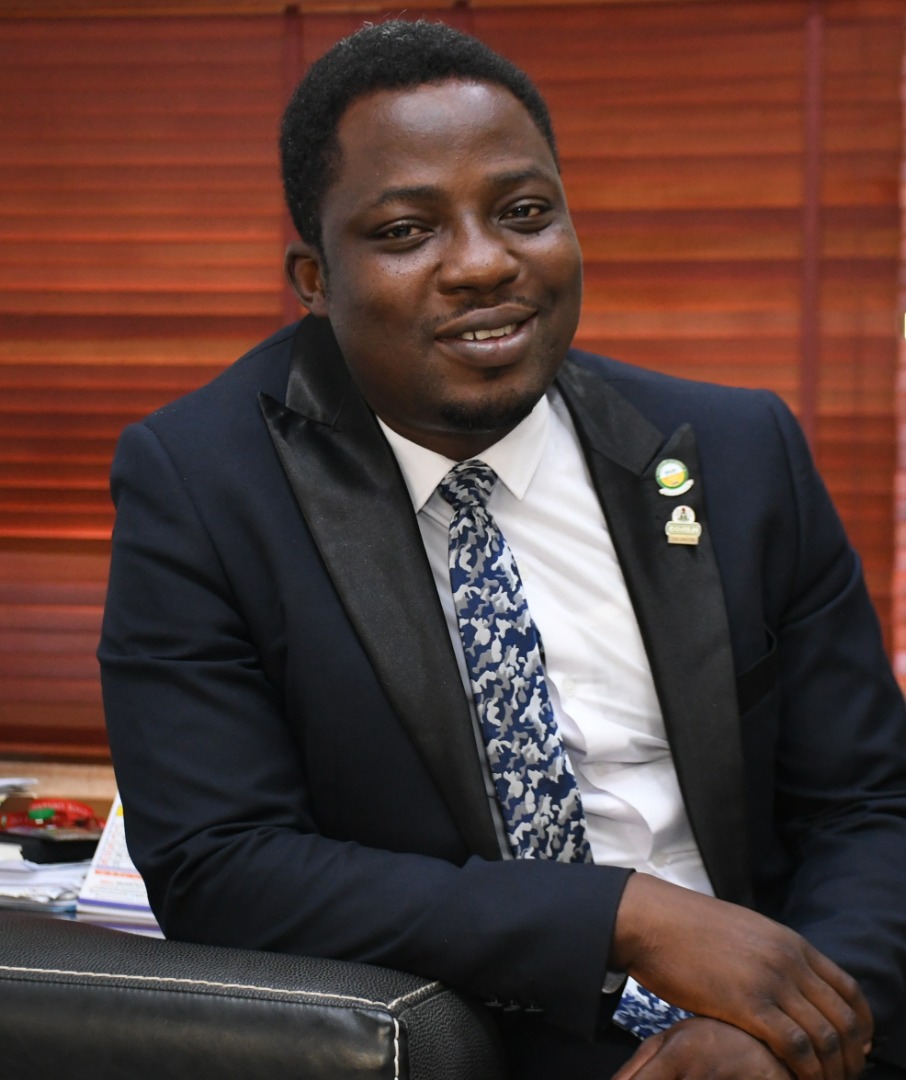 Dr. OBIYEMI Obiseye, B.Sc, M.Sc, Ph.D
Dr. OBIYEMI Obiseye, B.Sc, M.Sc, Ph.D
Director, Inter-Campus and Public Affairs
Email:
Obiseye OBIYEMI holds a 2017 PhD in Electrical and Electronics Engineering from the University of Ilorin, Nigeria. A lecturer in the Department of Electrical and Electronic Engineering, Osun State University where he teaches both undergraduate and postgraduate students since 2010. Apart from his active participation in research, he is fully engaged in various activities relevant to the smooth running of the Department, Faculty, College and the University at large, and is currently serving as the Acting Director of the Directorate of Inter-Campus and Public Affairs (DICPA).
His research interest include radiowave propagation, microwave and millimeter wave propagation, artificial intelligence, embedded Electronics and cognitive radio. He is actively involved in research and has presented contributions in learned journals and also attended various local and international conferences and workshops.
Dr. Obiyemi was a research affiliate at the School of Electrical, Electronic and Computer Engineering, University of KwaZulu Natal, Durban, 4041, South Africa. He is a member of several academic and professional organizations including the Council for the Regulation of Engineering in Nigeria (COREN), Nigerian Society of Engineers (NSE), Society of Satellite Professionals International (SSPI), Institute of Electrical and Electronic Engineers (IEEE) and the Teachers’ Registration Council of Nigeria (TCN).
Dr. Obiyemi has served on various university statutory and ad hoc committees including the Integrated Teaching and Research Farm Committee, Committee of Deans, Provosts and Directors. He served as the coordinator of the Department of Electrical & Electronic Engineering for the 2017/2018 academic session. He is the inaugural managing editor of the UNIOSUN Journal of Engineering and Environmental Sciences (UJEES), the official peer reviewed journal of the Faculty of the Engineering and Environmental Sciences, Osun State University.

Professor ALEBIOSU Christopher Olutayo, BSc, MBChB, FWACP
Email:
Professor ALEBIOSU Christopher Olutayo is a fellow of the West African College of Physicians and an awardee of the Nigerian University Commission Award for indigenous research in 2004. He has also won competitive training fellowship awards from the World Diabetes Foundation Fellowship/International Diabetes Federation Fellowship Award (2003), International Society of Peritoneal dialysis Fellowship Training (2005) and IDF-BRIDGES Translational Research Grants Course, Ghana, 2008.
He distinguished himself in the first Nigerian Study on Clinico-pathological Study of Diabetic Nephropathy based on renal biopsy. He is the Principal Investigator of the World Diabetes Foundation SIDCAIN Projects in Nigeria (WDF08-321 & WDF 10-515) and a Research Grant Project awarded by the Agricultural Research Council of Nigeria (ARCN). He has over 45 scientific publications to his credit, mainly in the field of diabetic nephropathy, hypertension and nephrology especially in offshore medical journals. He has hosted major scientific conferences and regional meetings. He was one of the organizing secretaries of the 2nd International conference on Drug Discovery and Therapy in Dubai (Feb 1st – 4th, 2010).
 Prof. Ayanniyi Bako Alhassan, B.Sc, M.Sc, PhD
Prof. Ayanniyi Bako Alhassan, B.Sc, M.Sc, PhD
Acting Dean, Faculty of Education
Professor Alhassan was born on 3rd July, 1953 in Minna, in today’s Niger State. His ancestral roots are in Ogbomoso, Oyo State. He attended Baptist High School, Ede, Advanced Teachers College, Sokoto, the Ahmadu Bello University for his B. A. Ed., M.Ed. degree programmes and the University of Wales, Cardiff, U.K. He taught in Ahmadu Bello University, Zaria, the University of Education, Winneba, Ghana and the National Open University of Nigeria, Lagos before joining the Osun State University, Osogbo on 15th July, 2009 as the first Professor of Educational Psychology.
Professor Alhassan is a hardworking academic, an assiduous researcher and a consistent administrator. Professor Alhassan has exhibited the qualities of a responsible, serious minded and focused academician among his colleagues. He demonstrates competencies in providing academic leadership and experiences as well as long list of publications in reputable peer-reviewed national and international journals, chapters in books and books single handedly written.
His newest book is entitled Concise Modern Dictionary of Educational Psychology (2011). He is a shining example among his colleagues.
Professor Alhassan is a Nominee of the Manquis Who’s Who in the World, 1999 16th Edition, 121 Chanion Road, New providence, New Jersey, USA, and Who’s Who in Nigeria 2010, Achievers Communications Limited, Ikeja, Lagos. Professor Alhassan is former Head, Arts and Social Sciences Education Department, former Acting Provost, College of Education and currently Ag. Dean, Faculty of Education, Ipetu-Ijesa campus, and Director, General Studies Unit, UNIOSUN. Professor Alhassan is married with Children.
Prof. Akinwusi Patience Olayinka
Dean, Faculty of Clinical Sciences
Dean’s Office, Faculty of Clinical Sciences
Email:
She has B.Sc (Hons) Health-Sciences 1980, MBCHB 1983 (both from the University of Ife, now Obafemi Awolowo University Ile- Ife), FWACP Oct 1993, FAHA 2015, FESC 2016. She worked as Medical officer/ Consultant physician/ Cardiologist with Oyo/ Osun State Hospitals Management Board and as a Resident Doctor with OAUTHC, Ife at various times; LAUTECH (2001-2010), served there as Ag Dean and Provost CHS and Osun State University (2010 till date). Has 2 TETFund grants.
Teaching-Physiology Courses. Research-> 60 publications, others on-going. Service – Dean, Faculty of Clinical Sciences, Senate representative in Council till 25/06/2017, Chairman, University Staff Disciplinary Committee, Advocate for good Cardiovascular Health, Chairman Health Research Ethics Committee, Editorial board member of Uniosun Journal of Sciences and Research Journal of Health-Sciences. External examiner to OAU, Examiner West African College of Physicians, Reviewer to many local and international Journals.
Has over 60 publications in the areas of Extensive use of echocardiography to detect the pattern of anatomic and functional changes in hypertensive Nigerians, relationship of these changes to their exercise capacity using six minute walk test, bicycle ergometer or treadmill.Pattern of cardiovascular function and Electrocardiographic changes in normal pregnancy in Nigerians and during oesophagogastroduodenoscopy. Also on Cardiovascular epidemiology and chronic Non-Communicable Disease Prevention. Has 2 ongoing TETFund Research Grants....
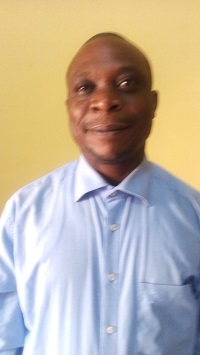 OGUNLEYE Seun Abiodun
OGUNLEYE Seun Abiodun
Administrative Officer II
Faculty Office, Faculty of Clinical Sciences
Email:
My name is Ogunleye Seun Abiodun, an Administrative Officer II and the Faculty Officer ,Faculty of Clinical Sciences in the College of Health Sciences Osun State University , Osogbo Campus. I am a native of Ada , Boripe Local Government Area, Osun State, Nigeria. I attended Osun State Polytechnic Iree between 1998 and 2001 and I obtained Diploma in Science Laboratory Technology in 2001. I obtained Bachelor of Science in Biology Education (BSc. Ed.) from University of Uyo Akwa -ibom state , Nigeria, in 2010. I am married with children.
I am the Faculty Officer of the Faculty of Clinical Sciences .I serve as secretary to all University Statutory committees of the Faculty such as Faculty Academic Board , Faculty Board of Examiners, Faculty Research Committee , Faculty Recruitment Committee and Faculty Review Panels and all addhock committees as the case may be . I also see to day to day running of the Faculty. I do clearance for newly admitted students and opening of the student’s Portal. I carry out registration of students ,opening of files and signing of student’s registration documents. As part of my function, I process students and staff requests to the College Board for consideration and for further processing . I also serve as a member of Congregation in the University. I perform function in the student’s Matriculation and Convocation ceremonies. I also pass information to both students and staff members in the Faculty through letters, memorandum, messages e.t.c . I work with the Dean of the Faculty and collaborate with the College Secretary .I am always in attendance at the College Meetings.
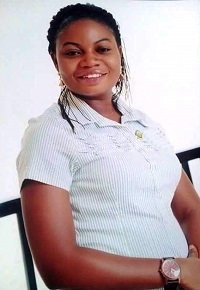 Amosun Omolara Christianah
Amosun Omolara Christianah
Confidential Secretary I
TETFUND, Building
Email:
My name is Amosun Omolara Christianah, a Confidential Secretary I in the Faculty of Clinical Sciences in the College of Health Sciences. I was born on the 25th May, 1979 in Modakeke, Ife-East Area, Osun State. I attended St. Stephen’s ‘A’ Primary School from 1985 to 1991. I also attended Our Lady’s Girls High School from 1991 to 1997. I later went to Osun State Polytechnic for my National Diploma in Secretarial Studies in the year 2001 to 2003 and Higher National Diploma in Secretarial Administration in the year 2005 to 2007 in the same Institution. I got Secretarial Appointment in Osun State University on the 16th March, 2010 as Confidential Secretary III and was posted to the Office of the Vice-Chancellor. I was later transfer to the Council Affairs Unit in May, 2015 and from there to the Office of the Dean, Faculty of Clinical Sciences in August, 2015 till date.
My Job Descriptions as a Confidential Secretary in Osun State University since I assumed duty are as follows:
Receiving and sending out of mails
Taking of Minute of Meeting
Typing of Documents
Assist in effective performance of protocol during Faculty Lecture and other activities in the Faculty.
Assist in effective performance of protocol in the office of the Vice-Chancellor
Assist in typing of Compilation of Senate Digest of the University
Assist in effective performance of protocol during Council Meeting and other related meetings in the Council Affairs unit
Performs other duties as may be assigned by the Dean, FCS, DR, (Council Affairs) and Deputy Registrar (Vice-Chancellor Office) during my working with them.etc.

